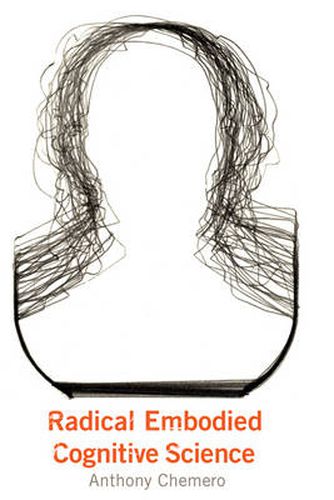Readings Newsletter
Become a Readings Member to make your shopping experience even easier.
Sign in or sign up for free!
You’re not far away from qualifying for FREE standard shipping within Australia
You’ve qualified for FREE standard shipping within Australia
The cart is loading…






While philosophers of mind have been arguing over the status of mentalrepresentations in cognitive science, cognitive scientists have been quietly engagedin studying perception, action, and cognition without explaining them in terms ofmental representation. In this book, Anthony Chemero describes thisnonrepresentational approach (which he terms radical embodied cognitive science), puts it in historical and conceptual context, and applies it to traditional problemsin the philosophy of mind. Radical embodied cognitive science is a direct descendantof the American naturalist psychology of William James and John Dewey, and followsthem in viewing perception and cognition to be understandable only in terms ofaction in the environment. Chemero argues that cognition should be described interms of agent-environment dynamics rather than in terms of computation andrepresentation. After outlining this orientation to cognition, Chemero proposes amethodology: dynamical systems theory, which would explain things dynamically andwithout reference to representation. He also advances a background theory: Gibsonianecological psychology, shored up and clarified. Chemero then looks atsome traditional philosophical problems (reductionism, epistemological skepticism, metaphysical realism, consciousness) through the lens of radical embodied cognitivescience and concludes that the comparative ease with which it resolves theseproblems, combined with its empirical promise, makes this approach to cognitivescience a rewarding one. Jerry Fodor is my favorite philosopher, Chemerowrites in his preface, adding, I think that Jerry Fodor is wrong about nearlyeverything. With this book, Chemero explains nonrepresentational, dynamical, ecological cognitive science as clearly and as rigorously as Jerry Fodor explainedcomputational cognitive science in his classic work The Language ofThought.
$9.00 standard shipping within Australia
FREE standard shipping within Australia for orders over $100.00
Express & International shipping calculated at checkout
While philosophers of mind have been arguing over the status of mentalrepresentations in cognitive science, cognitive scientists have been quietly engagedin studying perception, action, and cognition without explaining them in terms ofmental representation. In this book, Anthony Chemero describes thisnonrepresentational approach (which he terms radical embodied cognitive science), puts it in historical and conceptual context, and applies it to traditional problemsin the philosophy of mind. Radical embodied cognitive science is a direct descendantof the American naturalist psychology of William James and John Dewey, and followsthem in viewing perception and cognition to be understandable only in terms ofaction in the environment. Chemero argues that cognition should be described interms of agent-environment dynamics rather than in terms of computation andrepresentation. After outlining this orientation to cognition, Chemero proposes amethodology: dynamical systems theory, which would explain things dynamically andwithout reference to representation. He also advances a background theory: Gibsonianecological psychology, shored up and clarified. Chemero then looks atsome traditional philosophical problems (reductionism, epistemological skepticism, metaphysical realism, consciousness) through the lens of radical embodied cognitivescience and concludes that the comparative ease with which it resolves theseproblems, combined with its empirical promise, makes this approach to cognitivescience a rewarding one. Jerry Fodor is my favorite philosopher, Chemerowrites in his preface, adding, I think that Jerry Fodor is wrong about nearlyeverything. With this book, Chemero explains nonrepresentational, dynamical, ecological cognitive science as clearly and as rigorously as Jerry Fodor explainedcomputational cognitive science in his classic work The Language ofThought.